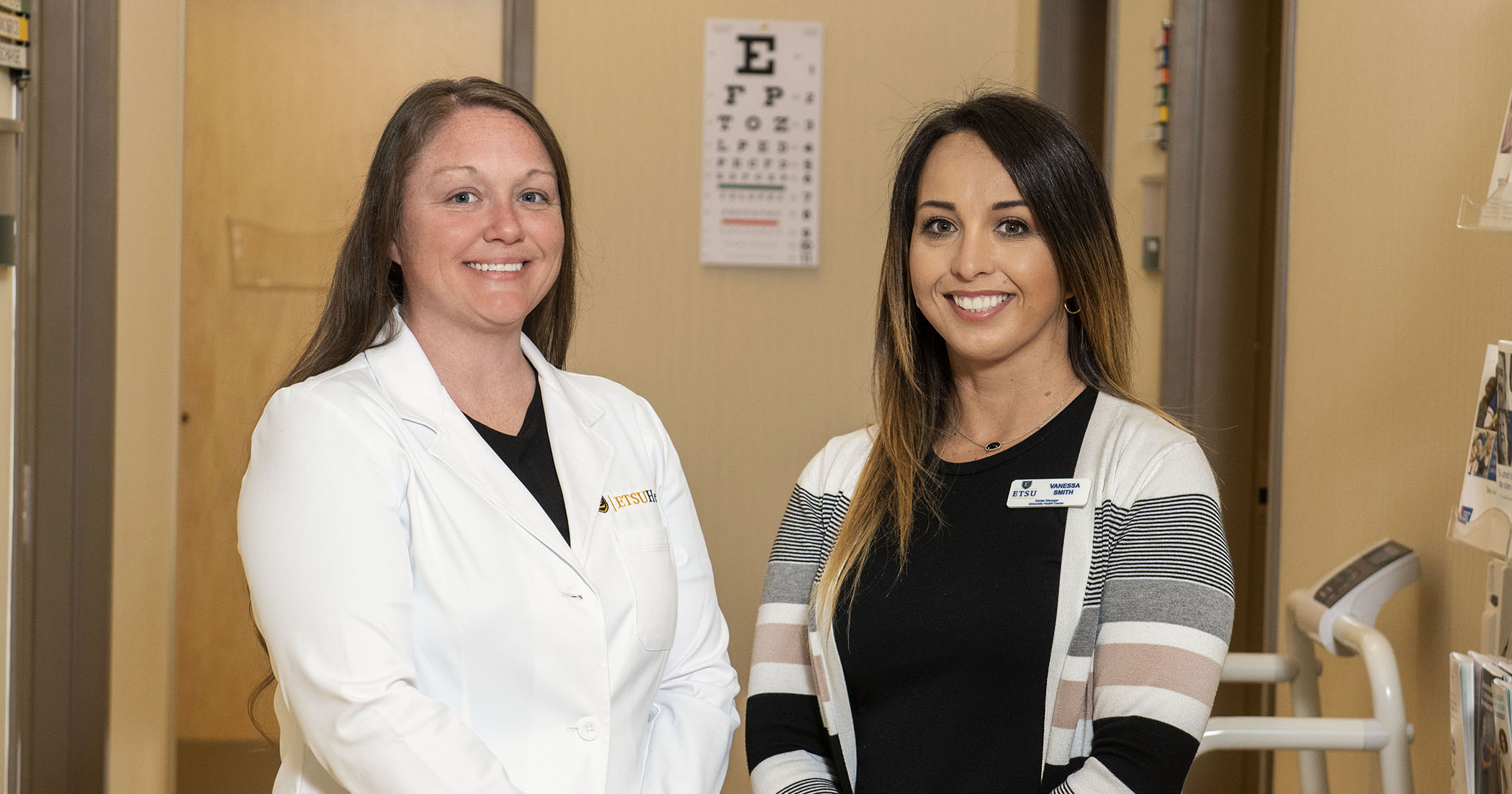
JOHNSON CITY (July 27, 2021) – The Johnson City Community Health Center (JCCHC), which is managed by the East Tennessee State University College of Nursing, has implemented a new tracking system that has been instrumental in improving the health of patients with diabetes.
Since the system was put in place, the clinic has recorded a significant decrease
in the percentage of patients who have uncontrolled diabetes, which is defined by
hemoglobin A1C levels at 9 or higher. In November 2020, 38% of the diabetic patient
population at JCCHC was uncontrolled. By April 2021, the uncontrolled population was
down to 29%.
“Our goal was to get it below 35%, and this new system did just that – and even exceeded
our expectations,” said Vanessa Smith, practice administrator.
The new system, which is built into patients’ electronic medical records (EMR), gives
providers a form, which includes a checklist and important medical reminders when
caring for a patient with diabetes. At each visit, the form ensures that the provider
can conveniently and consistently track specialized concerns related to patients with
diabetes. The form includes items related to A1C levels, diabetic eye exams, foot
exams, medications, and other important considerations for patients with diabetes.
“The form was developed to assist our providers so that they can provide even better
care to our patients,” said Dr. Kayla Norman, clinical director. “The providers have
embraced it, and after tracking it over a six-month period, it was clear that it has
fulfilled its purpose.”
Smith and Norman developed and implemented the new tracking system as part of their
10-month fellowship with the Duke-Johnson & Johnson Nurse Leadership Program. The program provided leadership development and required that they develop and launch
a transformational health improvement initiative within their organization or community.
“We were already evaluating our patients’ A1C numbers, and this fellowship was a good
opportunity to develop a system that put everything at our providers’ fingertips in
order to help reduce our percentage of patients with uncontrolled diabetes,” Norman
said.
Smith and Norman worked with Janice Jones, systems manager with ETSU College of Nursing
Office of Practice, to implement the new system in the EMR. They also collaborated
with the clinic’s care coordinator to ensure that patient needs, such as medication
affordability and food insecurity, were being met.
The new tracking system was so successful that Smith and Norman are expanding its
use.
“Now, our providers are using the form not only for diabetes, but for other screenings,
as well,” Smith said. “And our next goal is to implement this system practice-wide
throughout our College of Nursing clinics.”
The College of Nursing has a network of seven nurse-managed practice sites that provide
nearly 30,000 primary care and outreach visits each year.
Services are available for insured and uninsured patients and are offered on a sliding fee scale based on household size and income for the patient portion of the bill. The sliding fee scale is offered to both insured and uninsured patients.
To learn more about the College of Nursing clinics, visit etsu.edu/nursing/clinics.
 Stout Drive Road Closure
Stout Drive Road Closure